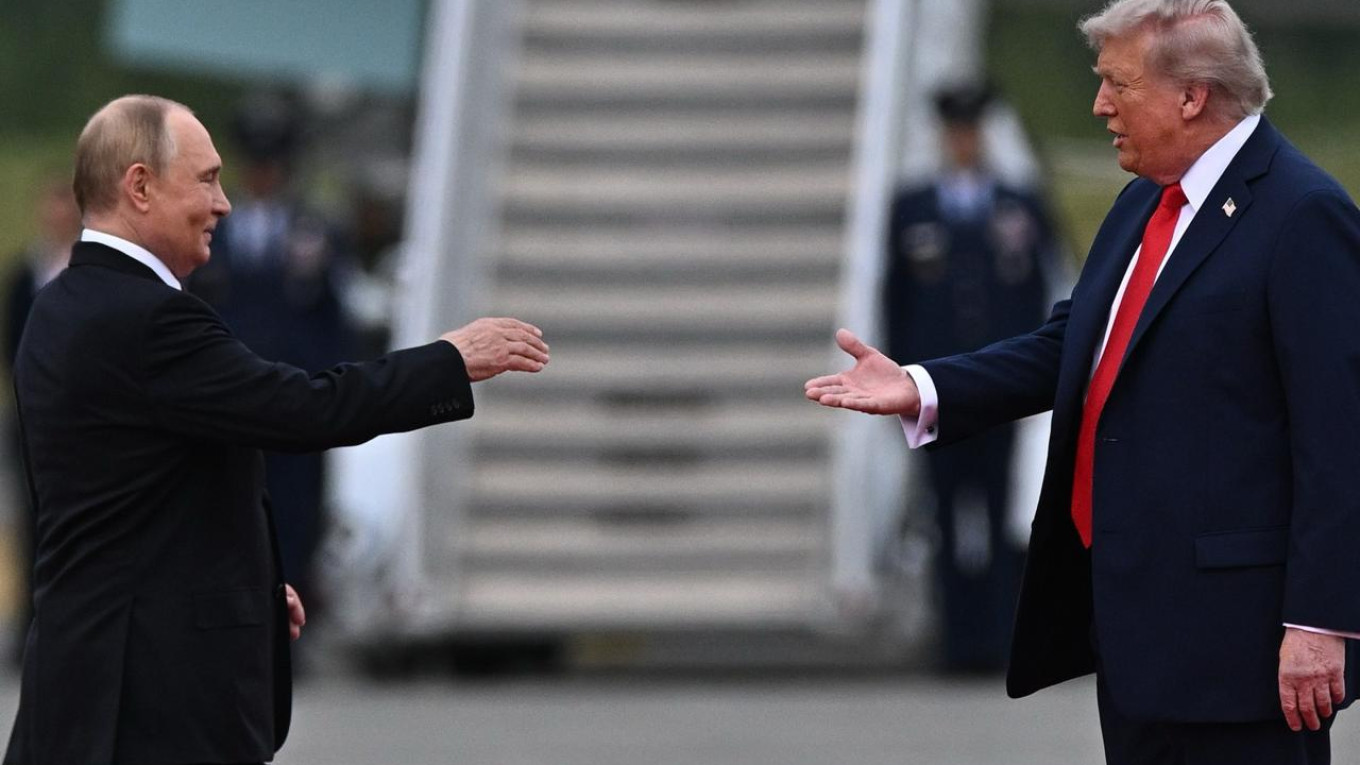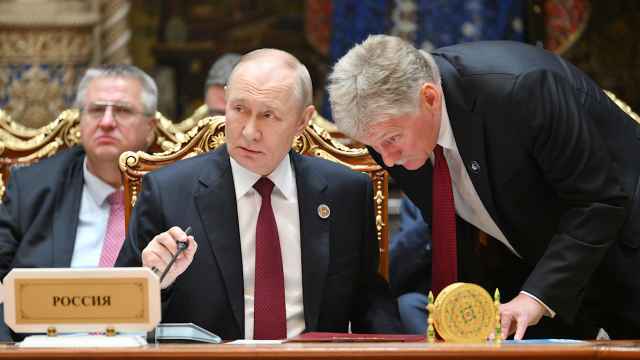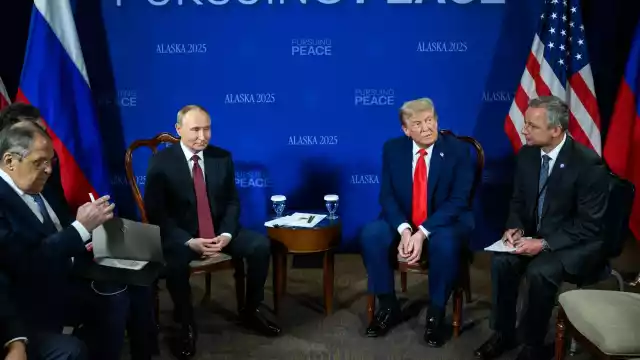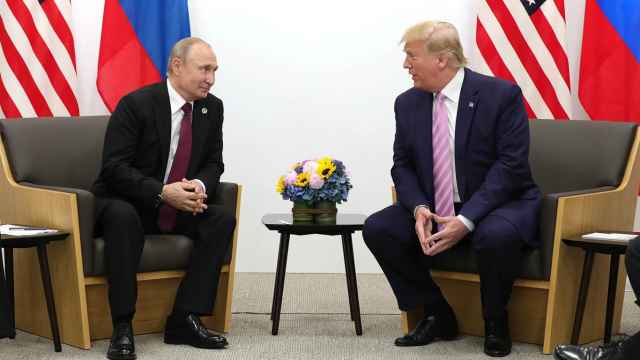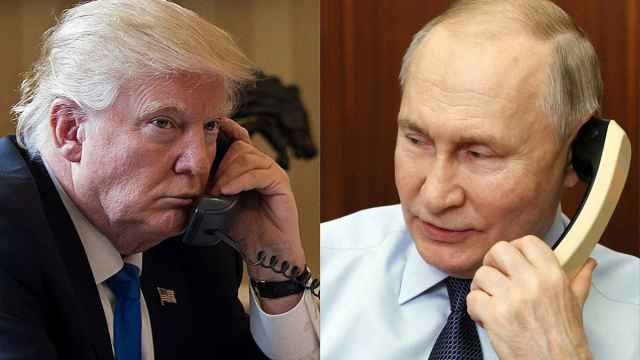President Vladimir Putin and U.S. counterpart Donald Trump said they made progress at ending the war in Ukraine in a high-stakes summit in Alaska but notably did not reach the landmark peace deal that Trump had been hoping for.
The historic summit at Joint Base Elmendorf-Richardson marked the first between Putin and a U.S. president since Russia’s invasion of Ukraine made him a pariah in the West over three years ago.
But despite a red-carpet reception for Putin and warm words traded by both leaders, the two sides appeared unable to reconcile their stark differences on how to end the war.
Speaking with the words “PURSUING PEACE” printed on the backdrop behind them, Trump said the two sides had worked through many disagreements on ending the war in Ukraine and only needed to iron out “a couple of big ones.”
“There are just a very few [sticking points] that are left,” Trump said. “Some are not that significant. One is probably the most significant — but we have a very good chance of getting there,” he said, without specifying what any of these issues were.
“We’re going to stop thousands of people a week from being killed,” he added.
“There’s no deal until there’s a deal,” Trump said, noting that he planned to call Ukrainian leader Volodymyr Zelensky and European leaders next.
For his part, Putin hailed the strong historical relationship between Russia and the U.S. in Alaska and the Trump administration’s efforts to “facilitate the resolution” of the war in Ukraine.
“I would like to hope that the understanding we have reached will allow us to get closer to that goal and open the way to peace in Ukraine,” Putin said.
“We expect that Kyiv and the European capitals will perceive all of this in a constructive manner and will not create any obstacles. That they will not attempt to disrupt the emerging progress through provocation or behind-the-scenes intrigue,” he said.
Putin then extended an invitation to Trump to meet with him in Russia, saying in English: "Next time in Moscow."
The two leaders then left the stage without taking questions from journalists, sparking an audibly baffled reaction in the press room.
Trump and Putin's joint press conference was expected to be followed by a “working lunch” with the two delegations, but this was canceled and the two presidents boarded their flights home.
It was not clear from the outset that things would go smoothly. Speaking en route to Alaska, Trump said that he would push for a ceasefire and was willing to “head back home real fast” if the meeting goes poorly.
“I want to see a ceasefire rapidly,” Trump told reporters on board Air Force One. “I don’t know if it’s going to be today, but I’m not going to be happy if it’s not today.”
In choreographed drama, Trump and Putin each arrived in their presidential jets and walked under gray skies to greet each other on the tarmac, before walking a red carpet together to an honor guard salute.
As fighter jets circled overhead, a reporter shouted audibly to Putin, "Will you stop killing civilians?"
Putin was joined by Foreign Minister Sergei Lavrov and Kremlin foreign policy aide Yuri Ushakov in the “three-on-three” talks, while Trump was accompanied by Secretary of State Marco Rubio and special envoy Steve Witkoff.
Trump had vowed to swiftly end the war upon assuming office in January, but multiple rounds of shuttle diplomacy failed to achieve results and Russia continued to bombard Ukrainian cities and press forward on the front lines.
Growing increasingly frustrated with Putin, he threatened to hit Moscow with secondary sanctions if it did not agree to end the war by Aug. 8 — an ultimatum that the Kremlin did not heed.
Leading up to the talks, there appeared to be little wavering in Russia’s terms for ending the war. Putin has been uncompromising in his maximalist demands, including for Ukraine to relinquish claim to four partially occupied regions and annexed Crimea.
Yet the Russian leader appeared open to striking a peace deal without Ukraine in Alaska, calling Trump’s efforts to end the war “rather energetic and sincere.”
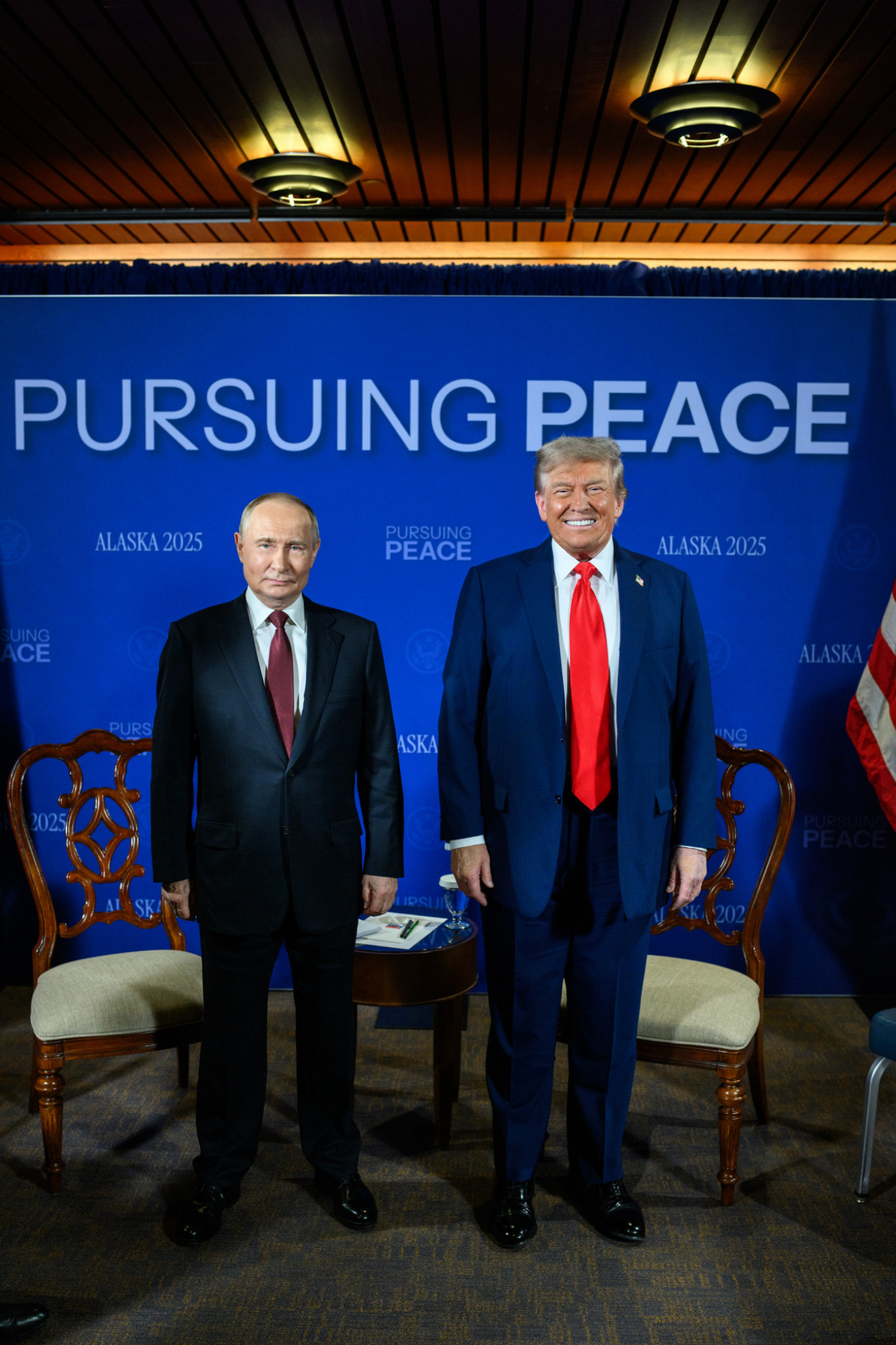
The Ukrainians, meanwhile, categorically reject the proposal of territorial concessions or swaps, arguing that withdrawing from the frontline regions would give Russia a foothold for a new invasion in the future.
President Volodymyr Zelensky, who was not invited to the Alaska summit, has repeatedly said in the lead-up to the meeting that there could be no peace without Ukraine’s input.
“Russia must end the war that it itself started and dragged on for years,” Zelensky said in an address on Friday. “The killings need to stop. A meeting of leaders is needed. At the very least — Ukraine, America, the Russian side, and it is in this format that effective solutions are possible.”
European leaders also urged Trump to respect Ukraine’s interests when negotiating with the Russians.
But by sidelining Zelensky, the leaders have signaled the broader scope of these talks, which were expected to encompass not just the war but also bilateral relations and economic cooperation.
Speaking aboard Air Force One, Trump said that he would be willing to discuss business opportunities — but added that no deals would be agreed upon “until we get the war solved.”
Trump and Putin last met in 2019 during the G20 summit in Osaka, Japan, for a discussion the American leader called “tremendous.”
He famously voiced admiration for Putin during his first term, breaking with the U.S. intelligence community's assessments that Russia worked to sway the 2016 U.S. presidential election in his favor.
AFP contributed reporting.
A Message from The Moscow Times:
Dear readers,
We are facing unprecedented challenges. Russia's Prosecutor General's Office has designated The Moscow Times as an "undesirable" organization, criminalizing our work and putting our staff at risk of prosecution. This follows our earlier unjust labeling as a "foreign agent."
These actions are direct attempts to silence independent journalism in Russia. The authorities claim our work "discredits the decisions of the Russian leadership." We see things differently: we strive to provide accurate, unbiased reporting on Russia.
We, the journalists of The Moscow Times, refuse to be silenced. But to continue our work, we need your help.
Your support, no matter how small, makes a world of difference. If you can, please support us monthly starting from just $2. It's quick to set up, and every contribution makes a significant impact.
By supporting The Moscow Times, you're defending open, independent journalism in the face of repression. Thank you for standing with us.
Remind me later.



